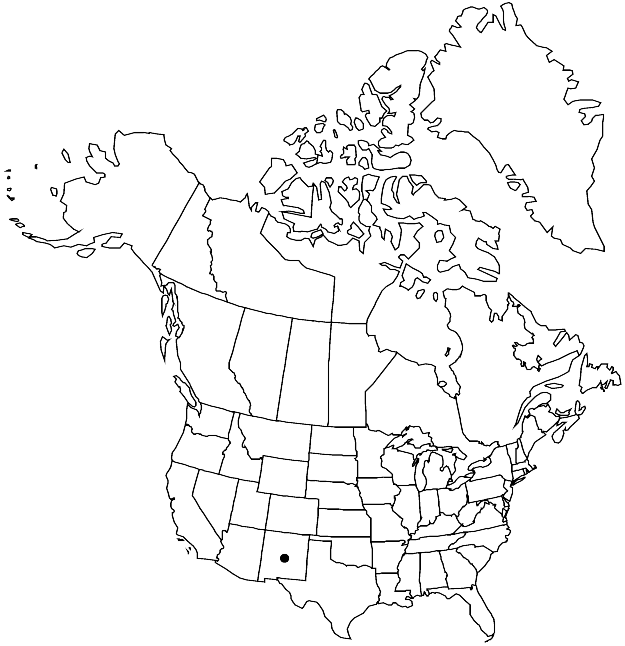Draba heilii
Harvard Pap. Bot. 14: 83, fig. 1. 2009.
Perennials; (densely cespitose); caudex few-branched (compact, with persistent, thickened leaves); not scapose. Stems unbranched or branched distally, 0.3–0.7 dm, glabrous throughout or, rarely, pilose, trichomes simple and stalked, 2-rayed, 0.2–0.5 mm. Basal leaves (persistent, imbricate); rosulate; undifferentiated into blade and petiole (becoming indurate at base); blade linear-lanceolate, 0.5–0.8 cm × 1–1.5(–2) mm, margins entire, surfaces glabrous or, rarely, pilose with simple and stalked, 2-rayed trichomes, (margins ciliate with simple and, rarely, 2-rayed setiform trichomes, 0.5–1.3 mm, midvein prominent). Cauline leaves 6–8; sessile; blade linear-oblong, 0.5–0.8 cm × 1–2 mm (widest about base), margins entire, (ciliate). Racemes 10–26-flowered, ebracteate, elongated in fruit; rachis not flexuous, usually glabrous, rarely pubescent, (trichomes non-crisped, simple and 2-rayed). Fruiting pedicels ascending, straight, 3–5(–7) mm, usually glabrous, rarely pilose, (trichomes simple and 2-rayed, stalked). Flowers: sepals ovate, 1.7–2.7 mm, usually glabrous, rarely pilose, (trichomes simple); petals yellow, oblong-oblanceolate, 4–6 × 1.5–2 mm; anthers oblong, 0.5–0.6 mm. Fruits narrowly lanceolate, twisted 1/2 turn or plane, flattened, 7–10 × 1.3–1.6 mm; valves glabrous; ovules 16–20 per ovary; style 0.7–1.3 mm. Seeds ovoid, 1 × 0.6 mm.
Phenology: Flowering Jun–Jul.
Habitat: Alpine tundra
Elevation: ca. 3700 m
Discussion
Draba heilii is restricted to Mora and Rio Arriba counties.
Selected References
None.
